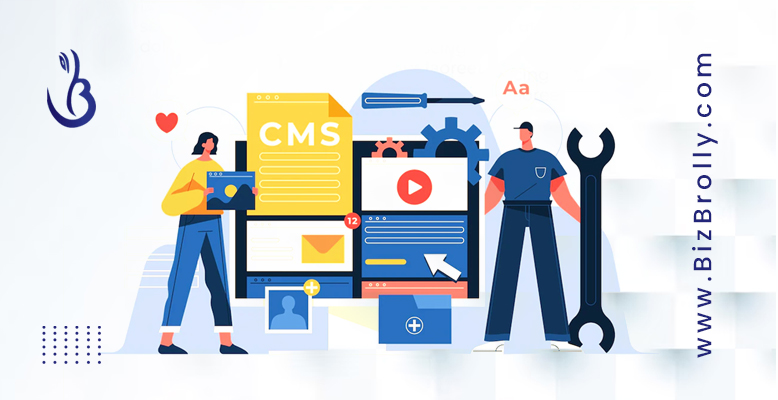
Custom software development has become an integral part of modern-day businesses, helping them streamline their operations, boost productivity, and enhance customer satisfaction. However, creating custom software can be a daunting task, especially for businesses with limited technical expertise. This is where a CMS, or Content Management System, comes in handy.
In this blog, we will explore what a CMS is, how to use it, and the benefits it offers.
A CMS is a software application that allows users to create, manage, and publish digital content, such as text, images, and multimedia, on a website. With a CMS, you can create and edit website content without any coding or technical knowledge. CMS platforms come with pre-designed templates and themes that allow users to customize their websites with ease.
How to use CMS?
Using a CMS is relatively easy, and it doesn’t require any coding knowledge. Here are the steps to follow when using a CMS:
There are numerous CMS platforms available, such as WordPress, Joomla, Drupal, and Squarespace.
Install the CMS – Once you’ve chosen your CMS platform, install it on your website. Most CMS platforms offer one-click installations, making it easy to set up.
Customize your website – Choose a theme or template and customize your website by adding your branding, logo, and other relevant information.
Create content With a CMS, you can create and publish content on your website with ease. With the help of the user-friendly interface provided by the CMS platform, you can easily add text, images, and multimedia to your website.
Publish your content – Once you’ve created your content, publish it on your website.
Using a CMS offers numerous benefits, including:
User-friendly – CMS platforms are designed to be user-friendly, allowing anyone to create and manage website content without technical knowledge.
Customizable – CMS platforms offer numerous templates and themes that users can customize to suit their branding and website needs.
Scalable – CMS platforms are scalable, meaning they can accommodate businesses of all sizes and handle increased website traffic.
Cost-effective – Using a CMS is cost-effective as it eliminates the need for hiring a developer or designer to create and manage your website.
SEO-friendly – CMS platforms are optimized for search engines, making it easier to improve your website’s visibility and attract more traffic.
With a CMS, businesses can focus on their core operations while enjoying the benefits of an optimized website. If you’re looking to improve your website’s performance, a CMS is a great place to start.
It simplifies the process of website creation and maintenance, making it easier for businesses and individuals to establish an online presence without extensive technical knowledge. With numerous CMS platforms available, users can choose the one that best suits their needs and customize their website using pre-designed templates and themes. The benefits of using a CMS include user-friendliness, scalability, cost-effectiveness, and SEO-friendliness. Overall, a CMS is a powerful tool that can help businesses streamline their operations and improve their online presence.